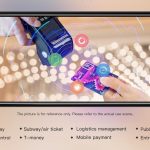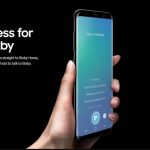The Biggest Lesson to Learn from Blowback Against Apple
 Apple recently hosted one of its big roll-out events, this time focusing on the launch of iPhone 6, among other new products and features. As has been the case for years, marketers and tech geeks throughout the online world were ready to live stream the event and react in real time. Past Apple launches have been surrounded by massive excitement and applause for Apple’s perpetual innovation. This year was different, however. There was palpable disappointment and even frustration.
Apple recently hosted one of its big roll-out events, this time focusing on the launch of iPhone 6, among other new products and features. As has been the case for years, marketers and tech geeks throughout the online world were ready to live stream the event and react in real time. Past Apple launches have been surrounded by massive excitement and applause for Apple’s perpetual innovation. This year was different, however. There was palpable disappointment and even frustration.
There are a lot of reasonable explanations for why the reaction to Apple was so strongly negative. Many pointed out that an introduction of a watch was a blunder since Apple has offered products for decades that moved people away from wearing watches. Everything that was introduced was expected. People already knew about Apple Pay before the presentation, for example, and everyone already knew there was going to be a new iPhone generation.
I don’t think these obvious flaws are really what are gnawing at people, however.
What has made Apple the mammoth that it is today? I don’t think it has just been about the innovative technology. Rather, I think it was Apple’s customer-centric approach. When Steve Jobs introduced the iPod back in the day, it was big news not just because of the technology but also because suddenly people were solving a problem they didn’t even know they had. MP3 players, cassettes, Walkmans (remember those?), and even DVDs suddenly became burdensome and inconvenient. The iPod, on the other hand, was intuitive, sleek, portable, and trendy.
Apple continued to work ahead of the curve for years, to the point where people, loyal Apple users or not, came to expect more problems they didn’t’ know they had to be randomly solved by the geniuses in Cupertino. Making the iPhone bigger or offering an Apple version of payment systems that already exist are company-centric tactics. Customers are not really benefitting. Problems are not getting solved.
What can your company learn from this? A few things.
1. Stay in touch with your customers. REALLY in touch. Understanding how your customers live and work is the only way you can determine what problems you can solve for them. Apple’s decision to collaborate with U2, a band that many younger people don’t really appreciate, is more proof that they have somewhat lost touch with their desired audience.
2. Utilitarianism wins over aesthetics. Everybody likes to have the next bright and shiny object, but in today’s busy world, where everyone is feeling overworked, convenience is the name of the game. Wearing a watch when you already have a handy device that tells time is not pushing the needle forward. In fact, it’s just giving you one more device to worry about.
3. Keep it about the customer. Perhaps the biggest mistake Apple has made this year is they have become too focused on themselves at the expense of serving their customers. Particularly if your company has done a good job of focusing on your customers in the past, it is absolutely essential to approach your market through a customer-centric prism.
Sure, you can argue that your company may not have the high profile that Apple does, but the lessons remain the same. When your customers feel like they are not your highest priority, they will go somewhere else. When your customers feel like you’re “phoning it in” or taking the easy way out, they will look for a company that is hungry. Stay hungry. Don’t take shortcuts. Above all else, keep your customers in the center of your universe.
Image Credit: https://www.flickr.com/photos/oyf/3426593704/ via Creative Commons
Business Articles | Business 2 Community
(106)













